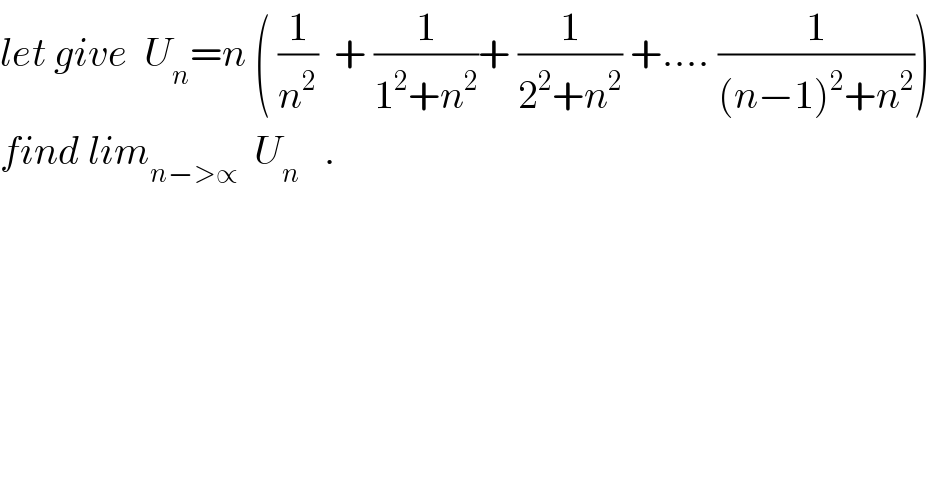
Question and Answers Forum
Question Number 27663 by abdo imad last updated on 12/Jan/18

Commented byabdo imad last updated on 13/Jan/18
![we have U_n = n Σ_(k=0) ^(n−1) (1/(k^2 +n^2 ))= (1/n) Σ_(k=0) ^(n−1) (1/(1+((k/n))^2 )) U_n is aRieman sum and lim_(n−>∝) U_n = lim_(n−>∝ ) ((1−0)/n) Σ_(k=0) ^(n−1) (1/(1+(((k(1−0))/n))^2 )) = ∫_0 ^1 (dx/(1+x^2 )) ^ =[arctanx]_0 ^1 = (π/4) .](Q27739.png)
| ||
Question and Answers Forum | ||
Question Number 27663 by abdo imad last updated on 12/Jan/18 | ||
 | ||
Commented byabdo imad last updated on 13/Jan/18 | ||
![we have U_n = n Σ_(k=0) ^(n−1) (1/(k^2 +n^2 ))= (1/n) Σ_(k=0) ^(n−1) (1/(1+((k/n))^2 )) U_n is aRieman sum and lim_(n−>∝) U_n = lim_(n−>∝ ) ((1−0)/n) Σ_(k=0) ^(n−1) (1/(1+(((k(1−0))/n))^2 )) = ∫_0 ^1 (dx/(1+x^2 )) ^ =[arctanx]_0 ^1 = (π/4) .](Q27739.png) | ||